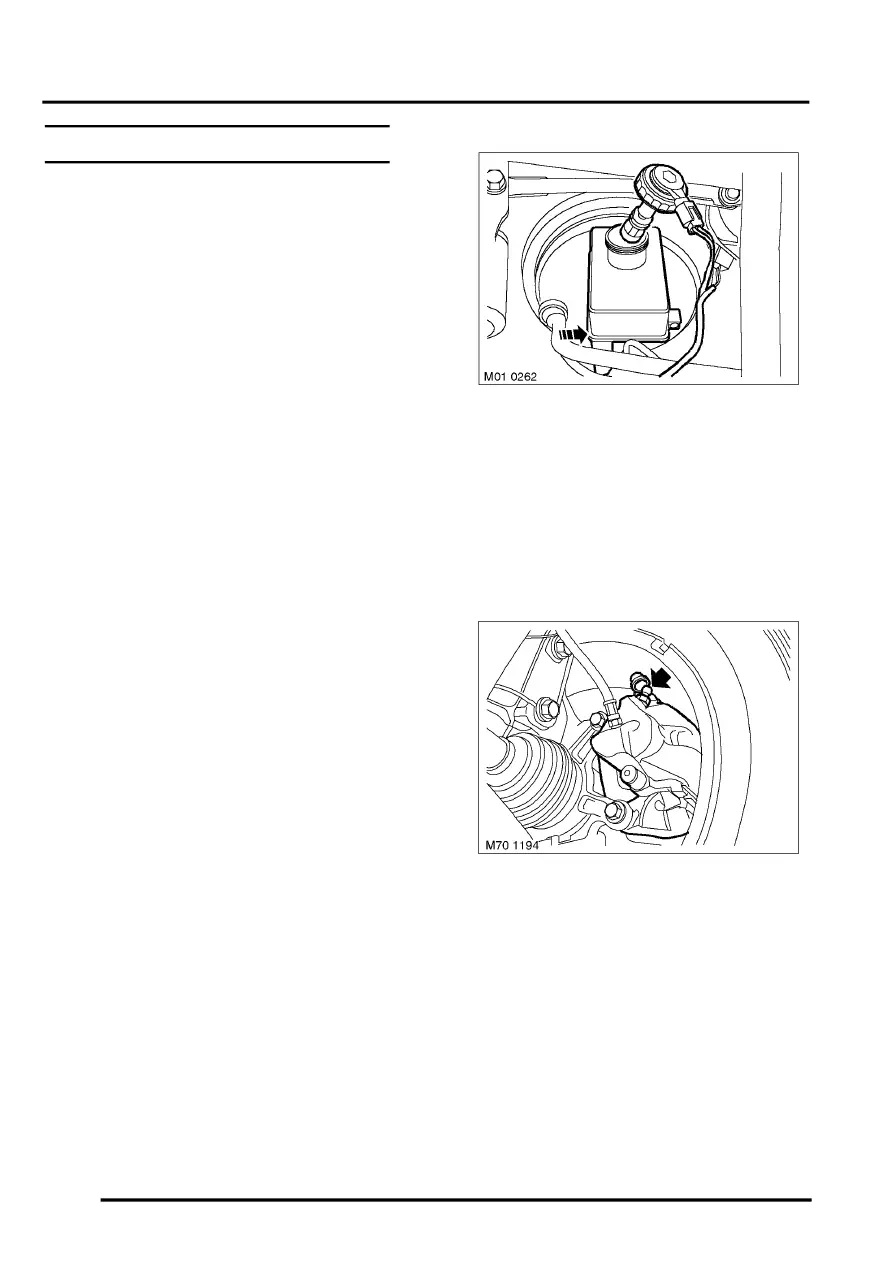L322 Range Rover Service Procedures

BRAKES
70-4
ADJUSTMENTS
Brake system bleeding
$% 70.25.02
Bleeding of the brake system can be carried out
using the procedures given on TestBook/T4, or by
following the manual procedure given below.
Check
1. The following procedure covers bleeding the
complete system but where only the primary or
secondary circuit have been disturbed in
isolation, it should only be necessary to bleed
that system. Partial bleeding of the hydraulic
system is only permissible if a brake pipe or
hose has been disconnected with only minor
loss of fluid.
WARNING: If any components upstream of
brake modulator, including the modulator
itself are replaced, the brake system must
be bled using the procedure on TestBook/
T4, to ensure that all air is expelled from the
new component(s).
Adjust
1. Raise front and rear of vehicle.
WARNING: Do not work on or under a
vehicle supported only by a jack. Always
support the vehicle on safety stands.
2. Check all pipe and hose connections are tight
and there are no signs of leakage.
3. Top-up fluid level in brake reservoir to 'MAX'
mark.
WARNING: Do not allow dirt or foreign
liquids to enter the reservoir. Use only new
Shell DOT 4 ESL brake fluid from airtight
containers. Do not mix brands of brake fluid
as they may not be compatible.
4. Attach bleed tube to front brake caliper bleed
screw on passenger side, submerge free end in
a clear container containing brake fluid.
5. Apply pressure to brake pedal several times,
then apply steady pressure.
6. Loosen bleed screw to release brake fluid and
air. Allow pedal to return unassisted.
